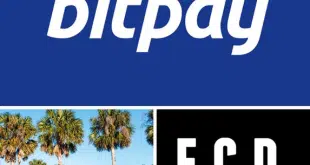Not yet five years after its implementation, a controversial federal regulation governing interchange and transaction routing for debit cards has come under review as part of a process set out by a 20-year-old law called the Economic Growth and Regulatory Paperwork Reduction Act.
The debit card regulation, the Federal Reserve Board’s Regulation II, is better known as the Durbin Amendment to the 2010 Dodd Frank Act, a massive reform of the U.S. banking and financial-services industries following the 2007-2008 financial crisis. Named for its chief sponsor, Sen. Richard Durbin, D-Ill., the amendment directed the Fed to implement its provisions, resulting in Reg II.
In an historic first, debit card interchange was capped when Reg II’s pricing rule took effect in October 2011, limiting what banks with $10 billion or more in assets could collect to roughly 24 cents per transaction. Six months later, the routing rules became effective for all issuers and required them to offer merchants a choice of at least two unaffiliated networks.
The EGRPRA requires the Federal Financial Institutions Examination Council, the Office of the Comptroller of the Currency, the Federal Deposit Insurance Corp., and the Fed to review their regulations at least once every 10 years. As a result, Regulation II is now just one of scores of regulations being re-examined by the four agencies. It’s unclear just how, if at all, the review will affect Reg II’s key provisions, its interchange caps and routing requirements.
At least one of the regulatory agencies, however, leaves open the possibility that changes could result, whether superficial or consequential, from the review. “The purpose of this [EGRPRA] review is to identify outdated, unnecessary, or unduly burdensome regulations and consider how to reduce regulatory burden on insured depository institutions while, at the same time, ensuring their safety and soundness and the safety and soundness of the financial system,” the FFIEC says on a Web page explaining the EGRPRA.
Perhaps for that reason, partisans have weighed in. This week, both the Electronic Payments Coalition, which lobbies for banks and the payments networks and opposes the Durbin restrictions, and the Food Marketing Institute, a grocery trade group that supports the law, filed comments as part of the review.
In addition to the FMI, the National Retail Federation and the American Bankers Association also submitted remarks this week via the Regulation.gov Web site, as did a collection of consumer groups that sent a common letter protesting restrictions Reg II places on prepaid cards. The comment period for Reg II closed Tuesday.
The EPC comment, which is signed by EPC executive director Molly Wilkinson and addressed directly to Fed chairwoman Janet Yellen, cites research published last year that showed merchants were not passing on debit interchange savings to consumers, though such savings were part of the rationale for the regulation. The EPC estimates the savings have totaled $36 billion since the pricing caps took effect in October 2011.
Wilkinson also argues that, since banks raised other consumer fees to compensate for reduced debit card income, the regulation has hurt low-income households.
By contrast, the FMI letter, submitted online and signed by Jennifer Hatcher, senior vice president for government and public affairs, points out that 98% of U.S banks are exempt from Durbin, as they fall below the asset cut-off. She argues the rate cap should have been set at a lower level and lauds the regulation’s routing rules for introducing competition into the debit market, though she says there should be more.
Hatcher also takes aim at a more recent development: the EMV liability shift, which has transferred to merchants that can’t process chip cards responsibility for counterfeit card fraud. With this shift, she argues, banks are effectively “double dipping,” since under Reg II they also collect a small allowance on top of the rate cap for fraud prevention. “The allowance for collecting the additional basis points should be removed once a bank issues chip-enabled cards,” Hatcher says in the letter.
Separately from the larger EGRPRA review, the Fed is expected to re-evaluate the debit-interchange ceiling this year in any case in recognition of a bi-annual review mandated by the Durbin Amendment.




